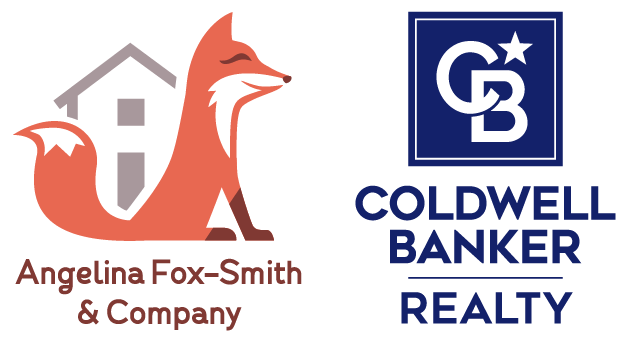First-Time Homebuyer Prep Guide
What to do before you contact an agent — plus a quick look at what happens next. This guide is designed to help first‐time buyers get financially ready, organized, and confident before they start viewing homes.
Who is This For?
- You're buying your first home (or it's been a while) and want to get financially prepared first.
- You want a step-by-step checklist, so nothing falls through the cracks.
The Pre-Search Readiness Plan (9 Steps)
Step 1 - Clarify your timeline & goals
[ ] Choose a target move-in month (plan for 30-45 days for contract-to-close)
[ ] List the reasons why you're buying (commute, schools, yard, investment, etc)
[ ] Define the "must-haves" vs "nice-to-haves"
[ ] Determine who will be on the loan/title
Step 2 - Build a realistic monthly budget (before price shopping)
[ ] Decide your comfortable max housing payment (PITI + HOA): aim for no more than 25-30% of gross monthly income for comfort
[ ] Add a buffer for utilities, maintenance (plan ~1% of home price per year), and lifestyle
[ ] Use a mortgage calculator to see payments at different prices/rates; note how taxes / insurance / HOA change totals
Rule of thumb: Lenders may allow higher debt to income ratios, but your budget should drive the price - not the other way around.
Step 3 - Pull & review your credit
[ ] Pull all 3 credit reports (Equifax, Experian, and TransUnion), dispute errors early (30-45+ days)
[ ] List revolving balances and plan pay-downs (lower utilization to less than 30%, less than 10% is even better)
[ ] Avoid late payments; set autopay minimums
[ ] Pause new credit cards and large purchases
Score tiers (typical, varies by lender)
- Conventional: 620+ minimum; better pricing usually 680/700/740+
- FHA: 580+ for 3.5% down (500-579 may require 10% down)
- VA: Veterans only, one VA loan at a time, must meet certain criteria
- USDA: Income-based, differs by county, must meet certain criteria
Step 4 - Map your cash: down payment, closing costs, reserves
[ ] Down payments: plan 3-5% (conventional) or 3.5% (FHA) at minimum; more can lower PMI and payment
[ ] Closing costs: estimate 2-5% of purchase price (lender + title + prepaids + escrows), USDA & VA loans are 0%
[ ] Reserves: keep 2-3 months of total housing payments post-closing (more if self-employed)
[ ] Move-in cushion: set aside for moving, tools, furniture, immediate repairs
[ ] If using gift funds, get early confirmation of source and required documents
Step 5 - Assemble your documents (lenders will ask!)
[ ] Last 30-60 days of pay stubs
[ ] Last 2 months of bank / asset statements (all pages)
[ ] Last 2 years of W-2s (and 1099s, if applicable)
[ ] Last 2 years of full tax returns (esp. self-employed)
[ ] Government ID + Social Security card (or equivalent)
[ ] Residence history (2 years), employment history (2 years)
[ ] Documentation for large deposits, gifts, bonuses, RSUs, child support, etc.
Step 6 - Choose a loan strategy
- Conventional: competitive for strong credit; cancellable PMI with equity is more than 20%
- FHA: flexible credit / down payment; mortgage insurance lasts longer
- VA (eligible veterans): often $0 down, no PMI; funding fee may apply, lifetime eligibility, only one VA loan at a time
- USDA (eligible areas / income): $0 down; geographic & income limits
- Fixed vs. ARM: fixed = payment stability; ARM can start lower but may adjust - know caps
- Points: paying points lowers the rate; break-even depends on time horizon
Tip: If you think you'll move or refinance within 5-7 years, avoid overpaying for points you won't recoup.
Step 7 - Get pre-approved (not just pre-qual)
[ ] Obtain at least 2-3 written Loan Estimates on the same day, if possible (rate, APR, lender fees, credits)
[ ] Request a fully underwritten pre-approval (documents reviewed by underwriting) for stronger offers
[ ] Rate-shopping credit pulls: most scoring models treat multiple mortgage inquiries within 30 days as one - complete your quotes within 2 weeks to be safe
[ ] Ask about rate locks, float-down options, and lender credits
[ ] Confirm how taxes / insurance / HOA are estimated in the payment
Step 8 - Lock in good behavior (from now until closing)
[ ] Do not change jobs (without talking to your lender)
[ ] Avoid new debt, co-signing, or large cash deposits
[ ] Keep credit card balances low and paid on time
[ ] Keep all documentation organized and respond quickly to lender requests
Step 9 - Create your "Buyer Packet"
[ ] Your pre-approval letter (PDF)
[ ] Proof of funds for downpayment / closing
[ ] Your budget, must-have list, neighborhoods & commute times
[ ] Notes on loan type, target payment, lock terms, and questions for your agent
Very General Steps Once You're Ready to Shop
- Connect with your agent (share your Buyers Packet & goals)
- Tour homes (in-person or virtual) and refine criteria
- Make an offer (price, earnest money, contingencies, closing date)
- Inspections (general + specialty as needed); negotiate repairs / credits
- Appraisal & underwriting (lender verifies value)
- Clear to close (final approval), final walk-through, and close (sign docs, get keys!)
Expect costs during this phase: earnest money deposit, inspections, appraisal, and final cash to close.
Quick Reference: Payment & Cash Cheat-Sheet
- Monthly payment ("PITI") = Principal + Interest + Taxes + Insurance (+HOA / PMI if applicable)
- Closing costs include lender fees, title / escrow, appraisal, credit report, recording, prepaids (taxes, insurance), and escrow setup
- PMI (conventional) can be removed when you hit about 20% equity (varies); FHA MIP lasts the life of the loan.
- Taxes & Insurance vary widely by area - always verify with your lender / agent.
Final Prep Reminders
- Your budget is your anchor. Don't let approval max dictate your life
- Keep reserves for repairs and surprises
- Communicate early and often with your lender and (when ready) your agent
(General guidance only - always confirm details with your lender and real estate advisor)



